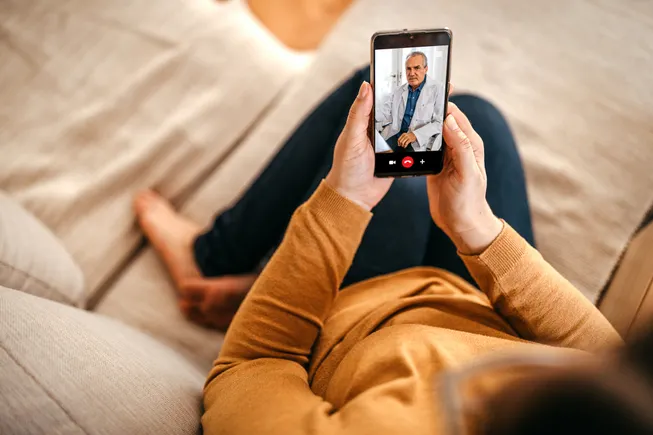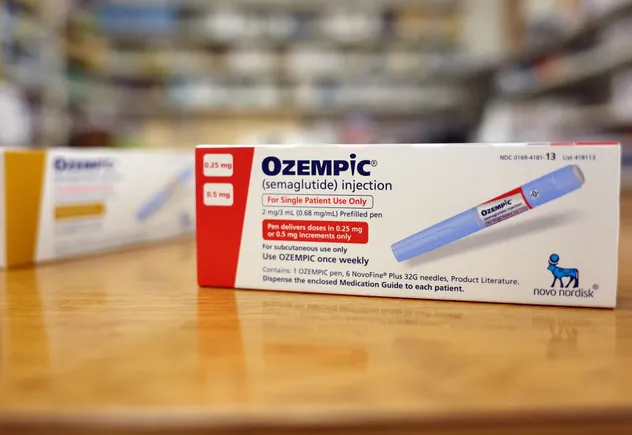Employees who live and work in remote or scattered locations can sometimes find it difficult to access their employer-sponsored healthcare benefits. Appointments for in-person services may require traveling long distances, or local health facilities’ operating hours may not fit the workers’ unconventional work schedules.
That’s the challenge Rogers Group, Inc., the largest privately held U.S. producer of aggregates, was facing. Based in Nashville, the company operates 85 quarries and 55 asphalt plants across 12 states. Its 30,000-plus employees include construction, plant and quarry laborers, heavy equipment operators and more. With most of them living and working in rural areas, getting healthcare services for themselves or their dependents often meant taking time off work and driving for an hour or more to get to an appointment. In addition, the physically demanding, high-risk work and long, irregular hours were heightening their exposure to some serious physical and mental health issues.
The company needed a way to provide accessible, convenient and affordable healthcare for its workers. With a focus on improving cardiometabolic health, influencing positive behavior changes, producing better clinical outcomes and lowering healthcare costs, Rogers group sought a proven partner to help it achieve those goals.
Rogers Group found a solution in an integrated virtual care program from Teladoc Health that promotes the physical and mental wellness of its workers and helps them and the company save money on healthcare.
For employers facing similar challenges with in-person healthcare access, incorporating virtual care into their benefits program can be an effective, results-driving solution.
Personalizing the care experience
Rogers Group has partnered with Teladoc Health since 2019 to offer employees streamlined, affordable access to 24/7 care, primary care, diabetes and prediabetes support, mental healthcare, dermatology and nutrition support. One of the most impactful engagement strategies Teladoc Health leverages is its innovative, AI-informed strategic member outreach, which allows participants to have a highly personalized experience.
“We put members into a journey that leverages multiple communication channels,” says Kristen Moody, Chief Client Officer for Teladoc Health. “It could be direct mail or email. The content and information is tailored to where that member is on their journey.”
Health coaches are available to help employees with cardiometabolic conditions maintain the healthier habits they’ve built within the Teladoc Health programs. “They offer personalized guidance to members, which makes a big difference, especially when they work in more remote settings,” Moody says.
Generating better health outcomes
With care at their fingertips, employees enrolled in the Teladoc Health program have realized significant clinical improvements. Moody notes that the treatment of employees living with diabetes was a leading driver of healthcare costs at Rogers Group. The company wanted to support those employees while also lowering the cost of their care.
So far, the progress toward those goals looks good. Forty-four percent of participants with diabetes dropped their A1c to below 6.5, which is considered remission-level. More than 87% of members receiving diabetes management support elected to use Teladoc Health devices to track their numbers, while more than half opted to enhance their management of the disease through digital coaching. Participants reported feeling more confident in their ability to manage their condition and the related stress.
“Rogers Group has seen a reduction in cost associated with diabetes and the halo effect of happier, healthier employees,” Moody says.
Overall, more than 94 percent of Rogers Group members enrolled in the virtual care program are actively engaged. Forty percent of those who rely on it for primary care have also used other telehealth services.
The easy care access the employees now enjoy has been life-changing. More than 40 percent of participants in the primary care program did not have a primary care physician during the two years before they enrolled, and 21 percent say they would not have gotten treatment for their health problems if Teladoc Health were not an option.
Delivering more than access
Employers to whom the healthcare accessibility challenges of Rogers Group sound familiar can draw lessons from that company’s experience to implement a virtual care program tailored to their own needs. One of the most important takeaways is how to identify the right vendor partner to develop that program. Moody stresses that a key consideration should be whether the virtual care vendor can deliver a connected care experience.
“Too often, patients are left to navigate care on their own, and they face fragmented communication, unclear follow-up steps, and long delays between touch points,” Moody says. “You need healthcare solutions that shift the focus from that episodic encounter and ensure that care does not start and stop with each visit but instead flows seamlessly.”






Leave a Reply